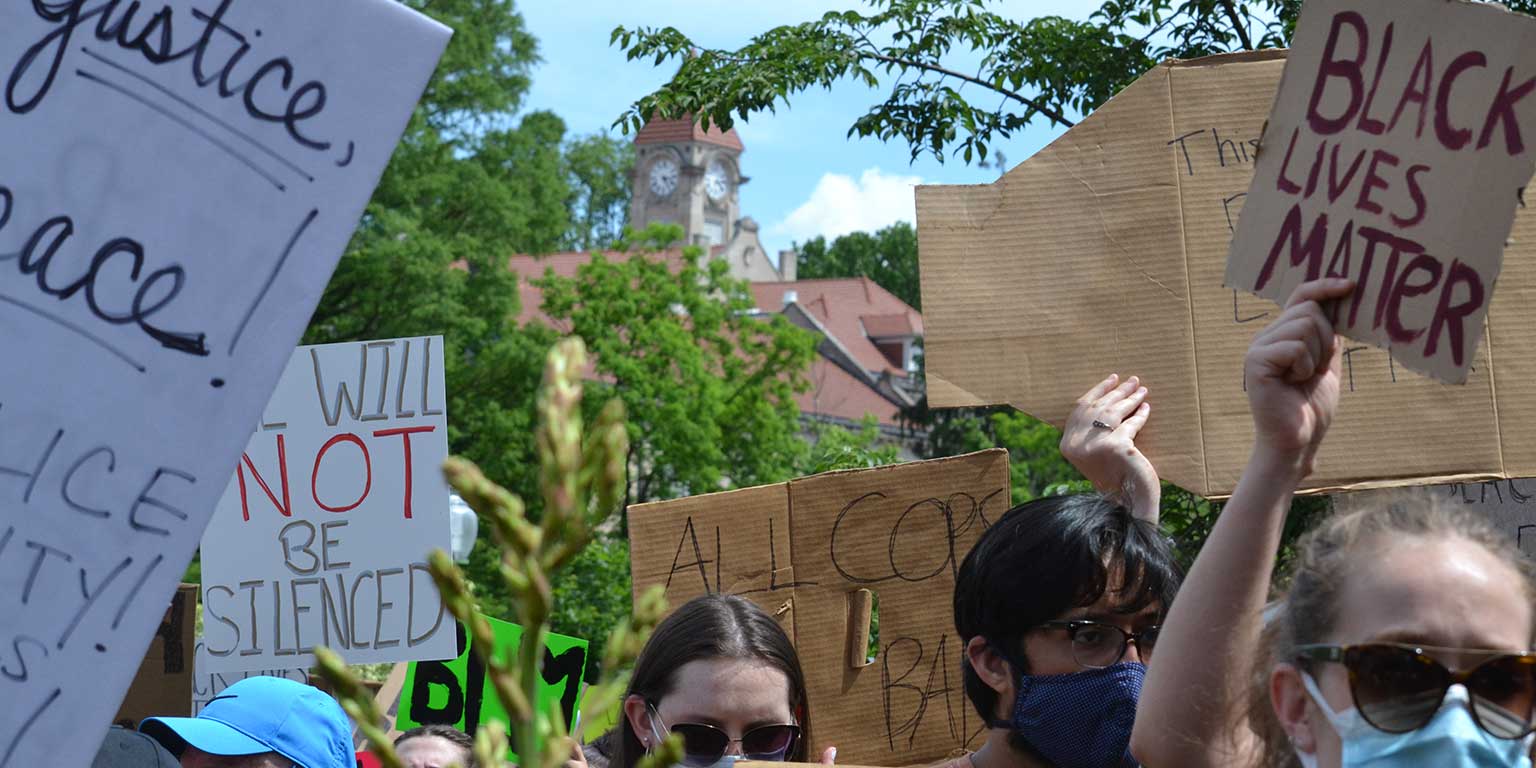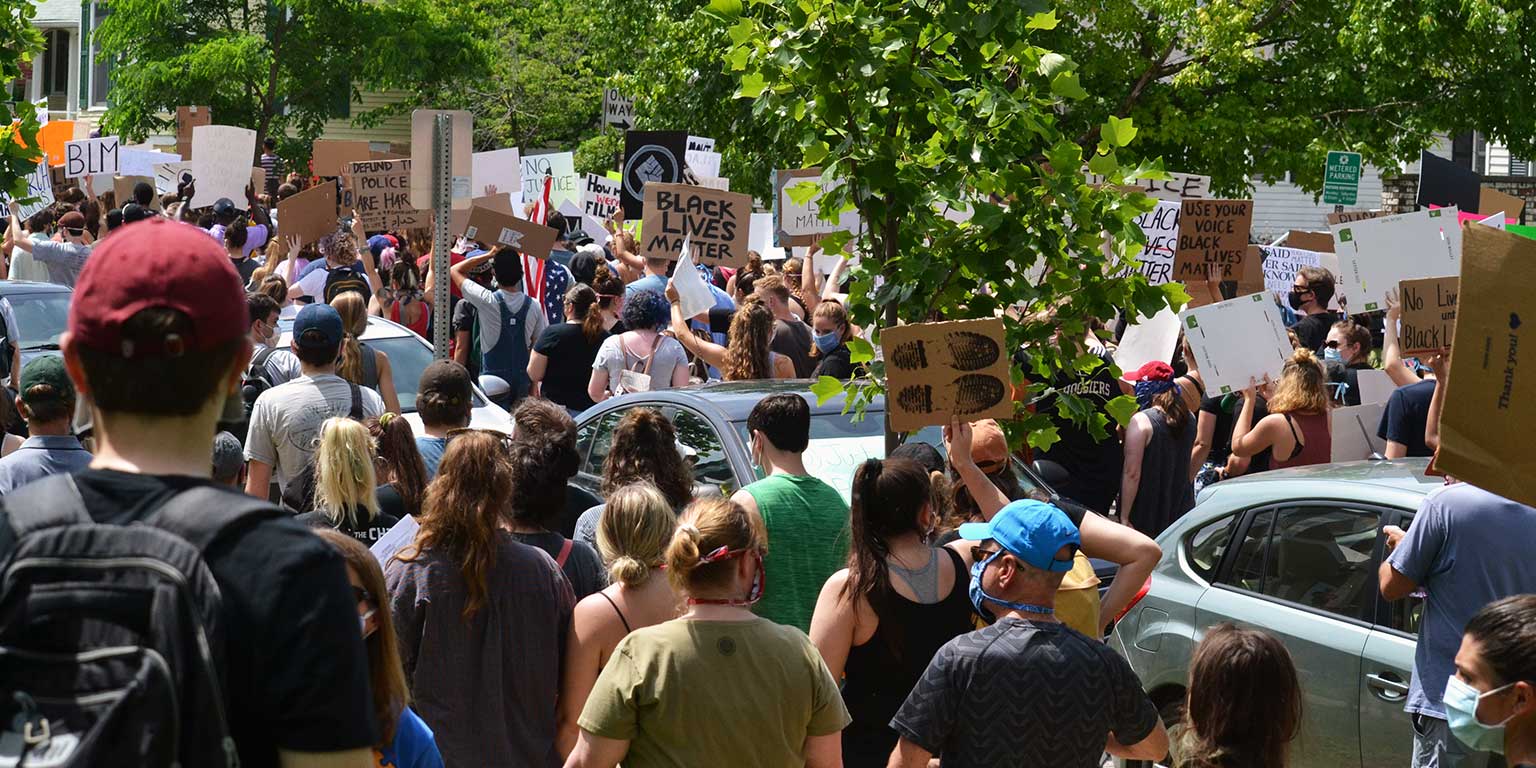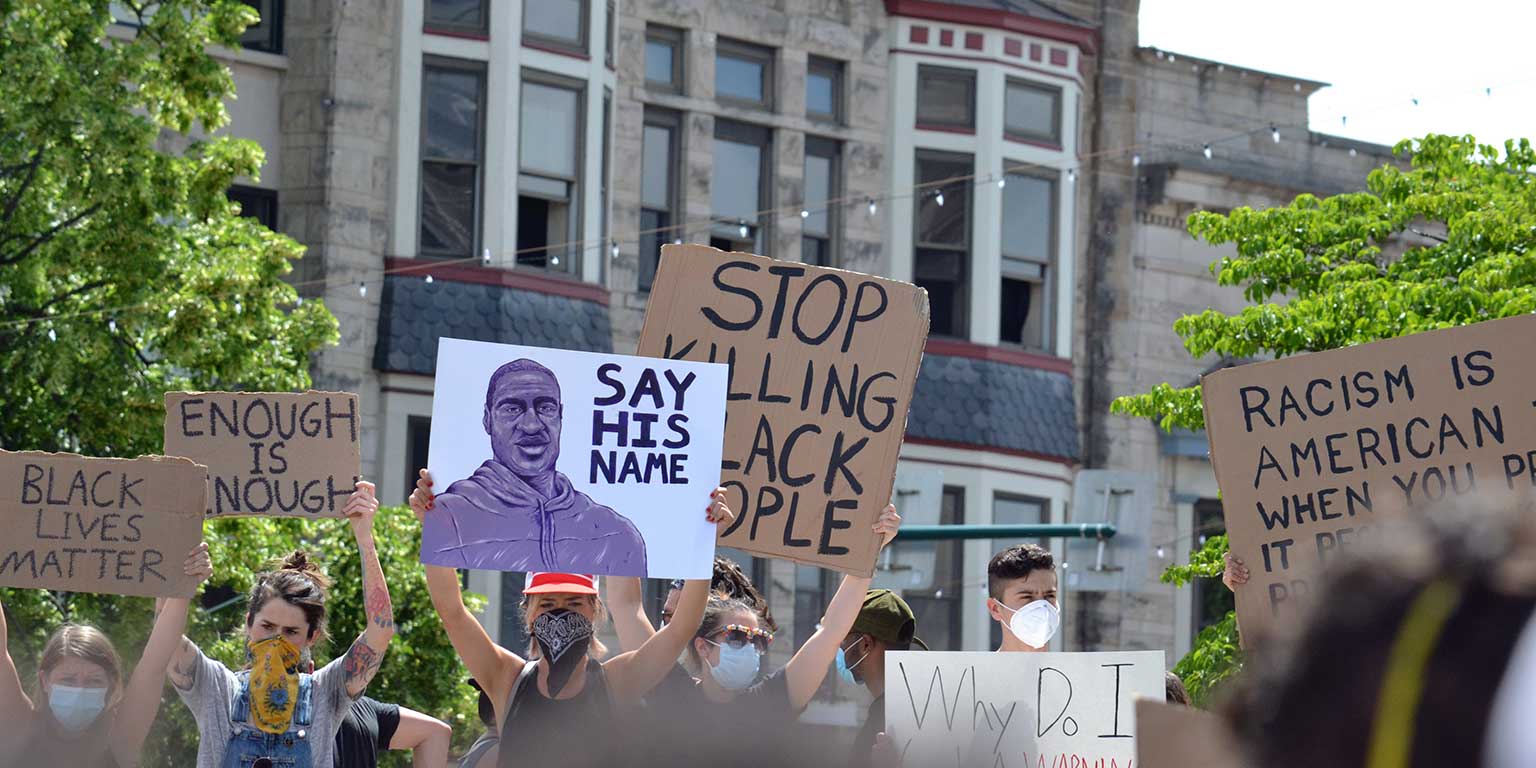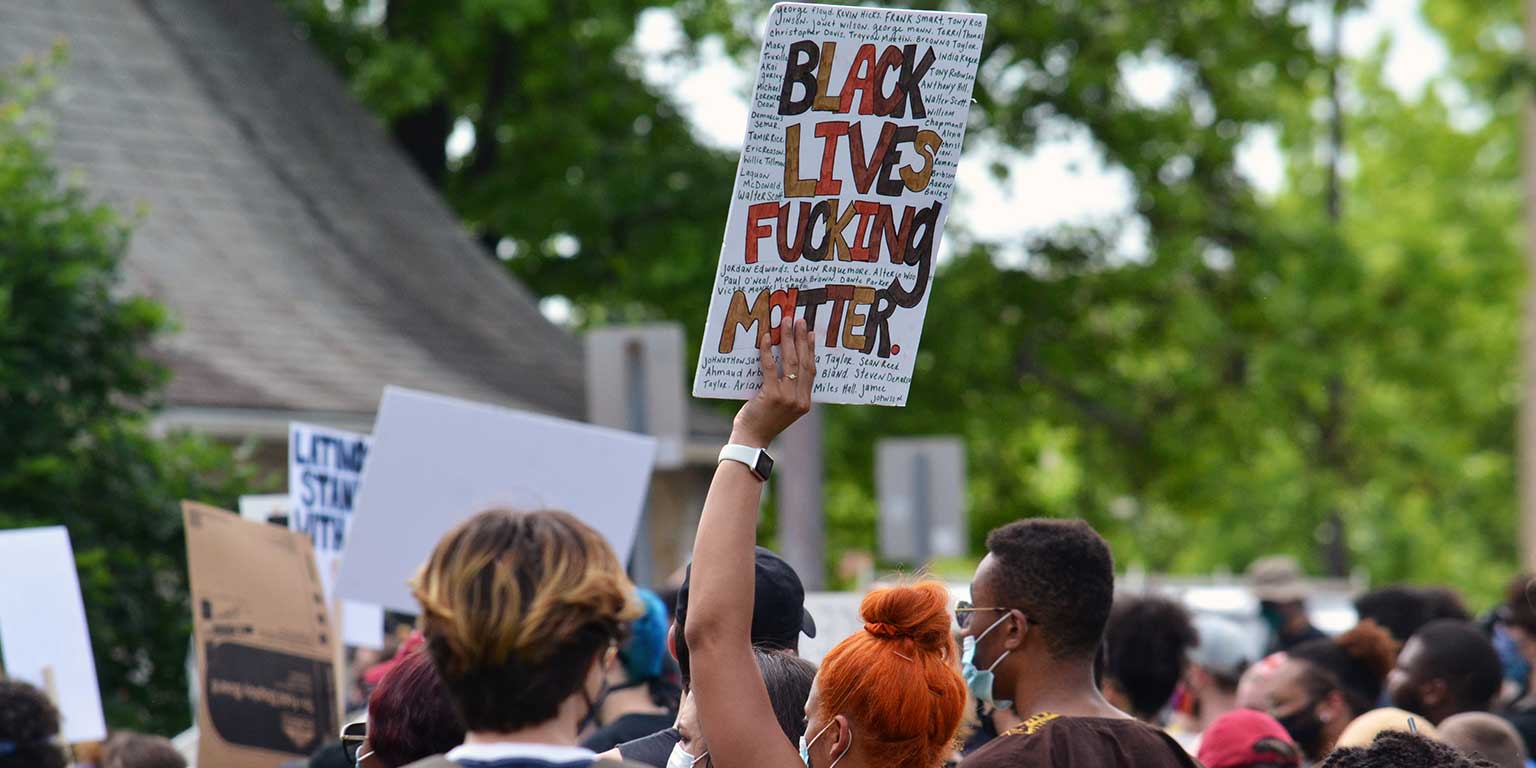Summer 2020
On June 5, the Bloomington Enough is Enough March began in Dunn Meadow and ended on the grounds of the Monroe County Courthouse, bringing the Indiana University campus and community into alignment with nationwide protests catalyzed by the deaths of George Floyd and other Black victims across the country. It also foregrounded painful revelations and fundamental questions about racial injustice and inequality on the IU campus, including in the College of Arts and Sciences.
“What will I do, what will you do, what will we do together to turn this hashtag-powered movement into a turning point in the College of Arts and Sciences and at IU Bloomington?” asks Carmen Henne-Ochoa, assistant dean of the College’s Office of Diversity and Inclusion. “We must say Black Lives Matter. But saying it is only the beginning, and it is not enough. We must work consistently to highlight and eradicate the depth of racial violence, injustice, and inequity, as these impact our Black students, faculty, and staff.”
Listening to the experiences of Black faculty, graduate students, and staff was a crucial step for the College’s executive dean, Rick Van Kooten, who hosted a listening session on June 10 and a second session on June 18 for a broader group of the academic community. Opportunities for undergraduate students to participate and be heard will be announced when classes resume in the fall. There will be more opportunities for the College community to participate in these discussions, including an upcoming listening session about anti-Asian racism.
When asked during the June 10 session what he wants to see, Van Kooten replied: “I want to see a pervasive anti-racist mindset and corresponding action throughout the College, with people of all colors and backgrounds calling out acts of aggression or bias and white supremacy when they see them. I want to see offenders held accountable. I want an equity of resources for everyone.”
He repeated these words in an e-mail to Black faculty, staff, and graduate students who spoke during the initial listening session. “I want you to know that I am committed to working across the College community to change the climate via concrete actions: to have you feel welcome in every room you enter, to have your voice heard in every conversation, and to have you seen and believed. I want to see our anti-racist work engender persistent changes in individual and collective behavior that lead to lasting transformation.”
As the work moves forward, two faculty members with extensive experience in understanding and combating racism will join Executive Dean Van Kooten and Assistant Dean Henne-Ochoa to help guide the process.
Beginning July 1, Professor Vivian Nun Halloran of English and American Studies assumed the role of associate dean for diversity and inclusion for the College, replacing Professor Russell Scott Valentino of Slavic and East European Languages and Cultures. Valentino stepped down from that role after a period of two years during which he worked to establish of the College’s Office of Diversity and Inclusion. Professor Amrita Chakrabarti Myers is also a newcomer to the executive dean’s office. Myers, the Ruth N. Halls Associate Professor of History and Gender Studies, has been appointed a fellow of the Office of Diversity and Inclusion. Both Halloran and Myers have studied and addressed anti-Black racism as scholars, teachers, and activists.
The College is also offering new courses that encourage students to learn and think more deeply about systemic racism. This August, incoming freshmen will have the opportunity to get a jumpstart on their academics by participating in a two-week pre-fall session. Courses featuring highly relevant topics will be offered, including several that focus on race: “COVID-19 & U.S. Inequality” and “Talking Race, Doing Anti-Racism.” More race-focused courses will be offered in two additional special sessions later this fall and in spring 2021.
“We have to say Black Lives Matter over and over and over again,” says Henne-Ochoa. “We must say it until Black lives do, in fact, matter. We are not there yet. We must address head-on anti-Black racism and the systemic inequity that disproportionately claims the lives of Black men, women, and transpeople and their livelihoods.”
Dean Van Kooten underscores this message. “We need to treat ally as a verb, not as a noun; a label that can be used too easily. The challenge is to be actively anti-racist, to be continually acting as an ally. And the actions we take need to be collaborative efforts.”






